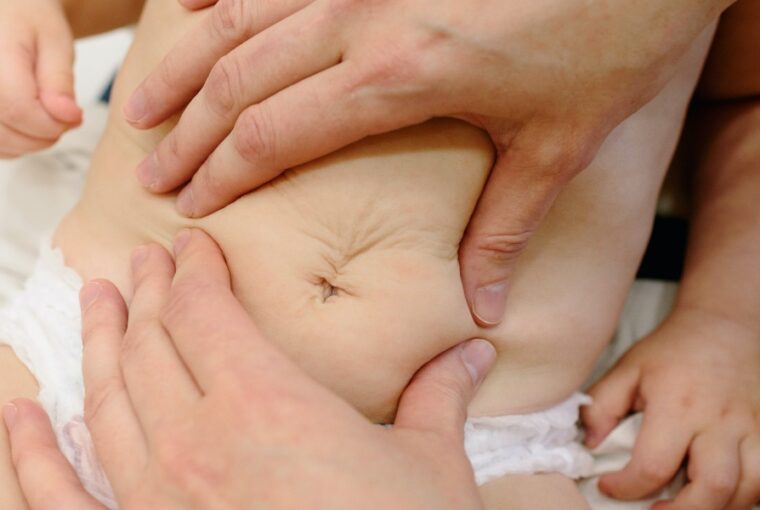The belly button, often overlooked in our daily lives, can sometimes become a source of concern when it starts bleeding. This seemingly innocuous part of the body serves a crucial purpose and is a focal point of our abdominal anatomy. When it bleeds, it’s essential to understand the reasons behind it and take appropriate action. In this article, we’ll delve into the potential causes of belly button bleeding, discuss when to worry, and explore preventive measures to keep your navel healthy and free from distressing issues.
Why Is My Belly Button Bleeding?
Belly button bleeding can occur due to various reasons, such as trauma, infections, or underlying medical conditions. It may also result from complications related to belly button piercings or during pregnancy. If you notice bleeding from your belly button, it’s essential to seek medical attention promptly to determine the specific cause and receive appropriate treatment, as some causes may be more serious than others.
Common Causes Of Belly Button Bleeding
Trauma or Injury: Accidental bumps, falls, or excessive pressure on the belly button area can cause minor bleeding.
- Infections: Bacterial or fungal infections in and around the belly button can lead to irritation, discharge, and bleeding.
- Umbilical Hernia: A protrusion of abdominal tissue through a weakened abdominal wall near the belly button can result in bleeding and discomfort.
- Dermatological Conditions: Skin conditions like psoriasis, eczema, or contact dermatitis can affect the belly button, leading to bleeding and itching.
- Foreign Bodies: Small debris, lint, or foreign objects lodged in the navel can cause irritation and bleeding.
- Pregnancy-Related Issues: Stretching of the abdominal wall during pregnancy or the presence of an umbilical granuloma in newborns can result in belly button bleeding.
Signs And Symptoms Of Belly Button Bleeding
- Visible Blood: The most obvious sign is the presence of blood coming from the belly button, often seen on clothing or when cleaning the area.
- Pain or Discomfort: Bleeding may be accompanied by tenderness, soreness, or a mild to moderate localized pain around the navel.
- Redness and Inflammation: The skin around the belly button may appear reddened, swollen, or irritated.
- Discharge: Infections or other underlying issues can cause abnormal discharge, which may be clear, pus-like, or discolored.
- Itching: Some individuals may experience itching in and around the belly button along with bleeding.
- Foul Odor: In cases of infection, an unpleasant odor may accompany the bleeding and discharge.
- Fever: If an infection is severe, it can lead to fever and systemic symptoms.
When To Consult A Healthcare Professional?
Knowing when to consult a healthcare professional for belly button bleeding is crucial for timely diagnosis and treatment. You should seek medical assistance under the following circumstances:
- Persistent Bleeding: If the bleeding doesn’t stop or continues intermittently, it’s a clear indication to see a doctor.
- Severe Pain: Intense or worsening pain associated with belly button bleeding requires immediate attention.
- Fever: The presence of a fever, especially if accompanied by other symptoms, could indicate a serious infection.
- Pus or Foul Odor: If you notice discharge with an unpleasant smell or unusual color, it may signify an infection.
- Increased Redness or Swelling: A rapidly spreading redness or swelling around the belly button could indicate a worsening condition.
- Underlying Medical Conditions: If you have a pre-existing condition like diabetes, or if you’re immunocompromised, consult a healthcare professional promptly.
- Recent Piercing or Surgery: If you’ve recently had a belly button piercing or surgery and notice bleeding or signs of infection, seek medical care.
- Pregnancy: Pregnant individuals experiencing belly button bleeding should consult their healthcare provider to rule out complications.
- Newborns and Infants: If a newborn or infant has bleeding from the belly button, consult a pediatrician for assessment and guidance.
- Any Concern or Uncertainty: If you’re unsure about the cause of your belly button bleeding or if it is causing you distress, it’s always advisable to seek medical advice for proper evaluation and diagnosis.
Tips For Preventing Belly Button Bleeding
Preventing belly button bleeding involves maintaining good hygiene and being cautious about potential risk factors. Here are some tips to help prevent belly button bleeding:
- Keep it Clean: Clean your belly button regularly as part of your daily hygiene routine. Gently wash the area with mild soap and warm water, then pat it dry.
- Avoid Harsh Cleaning: Don’t use abrasive or harsh products in your belly button, as these can irritate the skin and increase the risk of bleeding.
- Proper Piercing Care: If you have a belly button piercing, follow aftercare instructions carefully. Keep the area clean and avoid playing with or twisting the jewelry.
- Protect It: When engaging in physical activities or sports, consider using protective gear or clothing to prevent accidental trauma to the belly button area.
- Watch Your Diet: Maintain a balanced diet to prevent obesity, which can increase the risk of belly button issues like hernias.
- Maintain a Healthy Weight: Being overweight or obese can put excess strain on the abdominal wall, potentially leading to umbilical hernias and bleeding.
- Proper Lifting Technique: When lifting heavy objects, use your legs instead of your back to minimize strain on your abdominal muscles.
- Avoid Tight Clothing: Wearing excessively tight clothing can create friction and pressure on the belly button area, leading to irritation or bleeding.
- Stay Hydrated: Proper hydration promotes healthy skin, reducing the risk of skin conditions that can affect the belly button.
- Regular Check-ups: Include your belly button area in your routine health checks to detect any issues early on.
Conclusion
In conclusion, understanding why your belly button might bleed is vital for your overall well-being. From trauma to infections, and even underlying medical conditions, a range of factors can contribute to this issue. Timely action and proper care are essential to prevent complications. By prioritizing good hygiene, monitoring for symptoms, and seeking professional advice when needed, you can keep your belly button healthy and free from bleeding. Remember that your body communicates through symptoms, so paying attention to them and taking action can make a significant difference in your health and comfort.
FAQs
Is Belly Button Bleeding Common?
No, belly button bleeding is not a common occurrence. It usually indicates an underlying issue that requires attention.
Can I Treat Belly Button Bleeding At Home?
Minor cases may be managed with proper hygiene and over-the-counter treatments, but it’s essential to consult a doctor for a proper diagnosis and treatment plan.
Is Belly Button Bleeding In Newborns Normal?
A small amount of bleeding in a newborn’s belly button can be normal due to the healing process, but excessive or persistent bleeding should be evaluated by a pediatrician.
Can Belly Button Piercings Cause Bleeding?
Yes, belly button piercings can lead to bleeding, especially if not properly cared for or if complications arise.
Is Belly Button Bleeding A Sign Of A Serious Medical Condition?
It can be, depending on the cause. While some cases are minor, others may be associated with underlying health issues, so it’s crucial to consult a healthcare professional to determine the cause and severity.




